Stefan Jennings Batista is a visual artist, educator & part time explorer based in Albuquerque, NM. He is an instructor of photography & illustration at Central New Mexico Community College, and has received degrees in art from the University of New Mexico & the Ringling College of Art & Design. His work has been featured in exhibitions, publications & projects across the USA & abroad. Stefan was born on the Gulf coast in SW Florida. His work is focused on intersections of identity & environment often with an emphasis on the social landscape. His practice is informed by a personal family history of constant relocation and re-acclimation. He plays music sometimes.
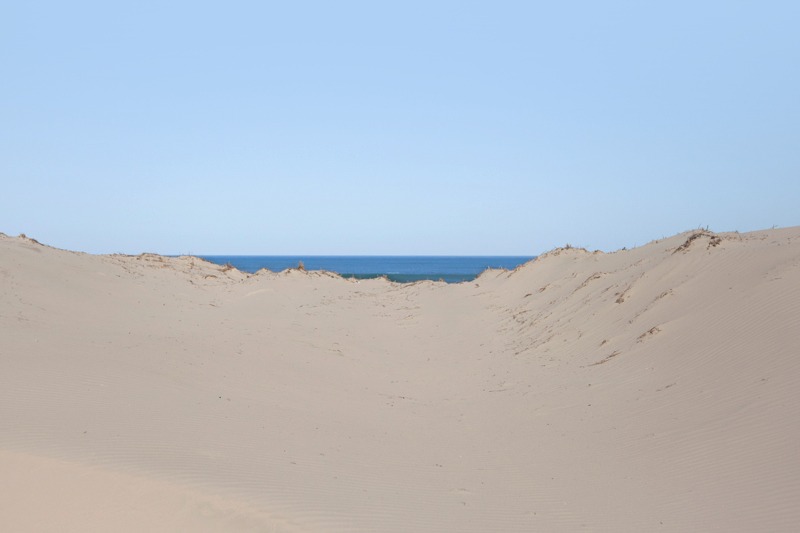
Searching for Water
The desert and ocean exist as one in the same in a sense, both seemingly endless and empty subliminal expanses. We are deeply captivated, even drawn to be confronted and dwarfed by their vast immensity, to gain perspective, to find truth or solace, to see death, to feel human. Having grown up by the sea, my childhood attachment to the ocean has instilled in me this fascination with the expanse and driven my search for personal oases.
“Searching for Water” is a photographic record that chronicles over three years of my life in transition after leaving the gulf coast for the American Southwest. While the title implies a pursuit of water in a literal sense, the photographs also use it as a metaphor to explore deeper visual themes of isolation, alienation, intimacy, change, loss and wonder within a strange and often desiccated American landscape.
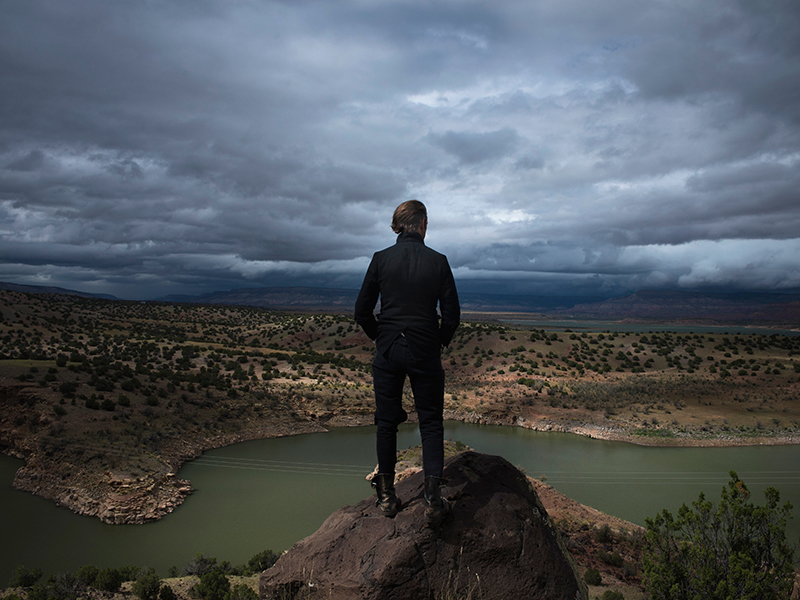
Thanks for talking to us today! Right off the bat, the title of your body of work, Searching for Water, implies a journey or a quest of sorts for water. This of course possesses varying degrees of literal and symbolic representation. Even in pictures without physical bodies of water shown, it can sometimes be found in layered background images or hinted at through a color. What does water mean for you in regards to the work?
Oh man. So, I’ve moved around a ton, and I’ve always craved a stable location – like a home. I’m from the South gulf coast of Florida, and it’s really lush and humid and there’s this beautiful turquoise water. Every time I left with my mom and brother, all we wanted to do was go back. Shit was tight though, so ma chased the money and the dream while a house or a city was never the childhood idea of home.
The water was. The beach, the coast, the gulf. It was primal for me… I was born with it; it was my thing. The ocean and I were synonymous, and in terms of symbolism water is a good analogue for life and oasis. Having left it all over again in the pursuit of my career and art making, it was almost tragically hilarious that all I wanted was to photograph the place that I left behind.

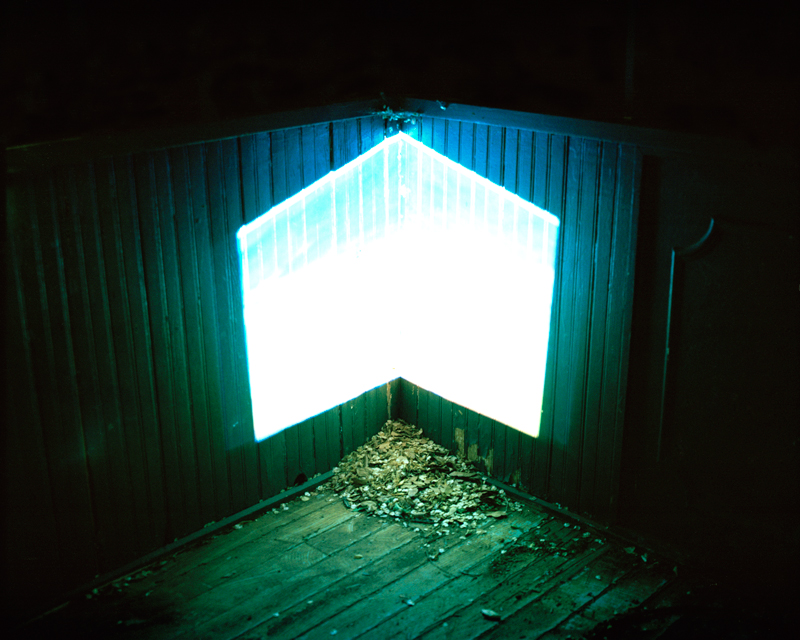
Along those lines, with water being a personal thing for you, I’m interested in the varying degrees to which water can be accessed in these photographs. I think that the first image in the series is a good example of this – is the barren desert landscape barring you from the Florida water? Especially since you’re in New Mexico now.
For sure. I feel that we often live out our momentary fantasies through images. Online on screens, or whatever, but at the same time the desert allows me to see. It’s weird how leaving what you want makes you see it in a new light. You begin to pull it apart.


Can you elaborate on the “momentary fantasies” you just mentioned? There’s a balance in the work between landscapes and portraits, and I think through that we begin to see a glimpse of the American dream philosophy and its visual language. Sometimes your subjects are photographed in a really intimate or serendipitous situation, but other times there’s a great sense of post-modern stress and anxiety. I was wondering if you could talk about those emotions and momentary fantasies as seen through the people you photograph.
I think for me, in a way, there is a raw essence that we attempt to get to by tearing back the layers of meaning in contemporary art and image making. That raw thing just also happens to exist in those serendipitous “moments.” We crave that thing that we can’t quite define. The sublime feeling that I get when confronted by an endless expansive landscape is the same for me as the one experienced when confronted by the gaze of a lover.
Or it’s a surreal scene that somehow embodies the feeling I get from the ocean, and I helplessly try to steal it and stick it in my pocket with a camera. We crave for things so hard nowadays because we (at least seemingly) are more aware of where we aren’t or who we aren’t or what we could be doing. We do this FOMO time/space travel with image sharing, and for me that process is about making images that somehow represent the thing that I feel I’m missing.
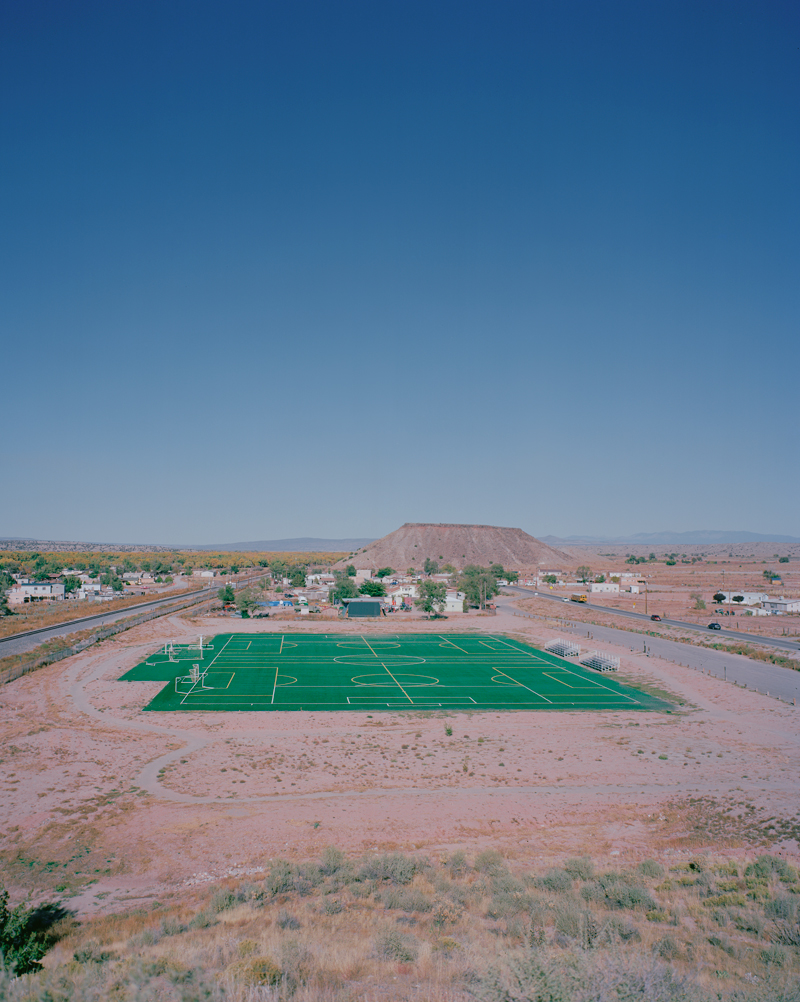
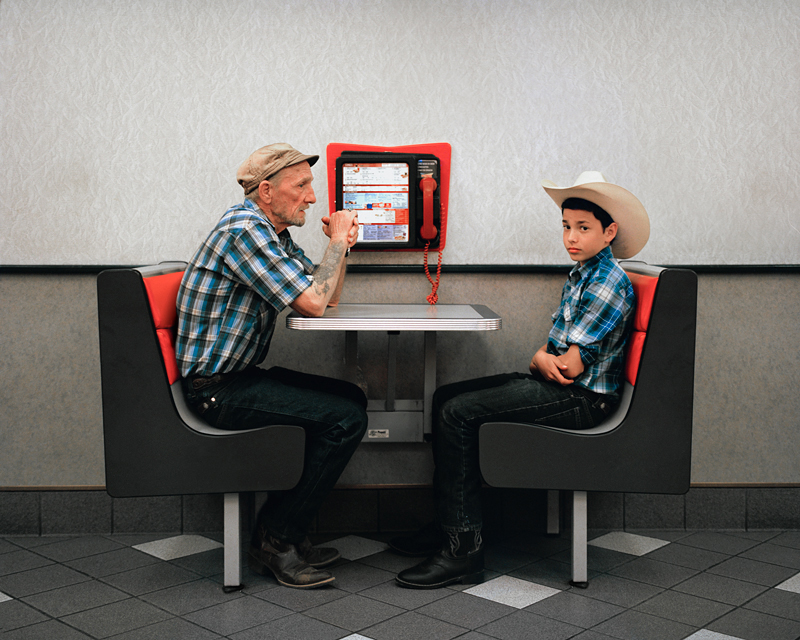
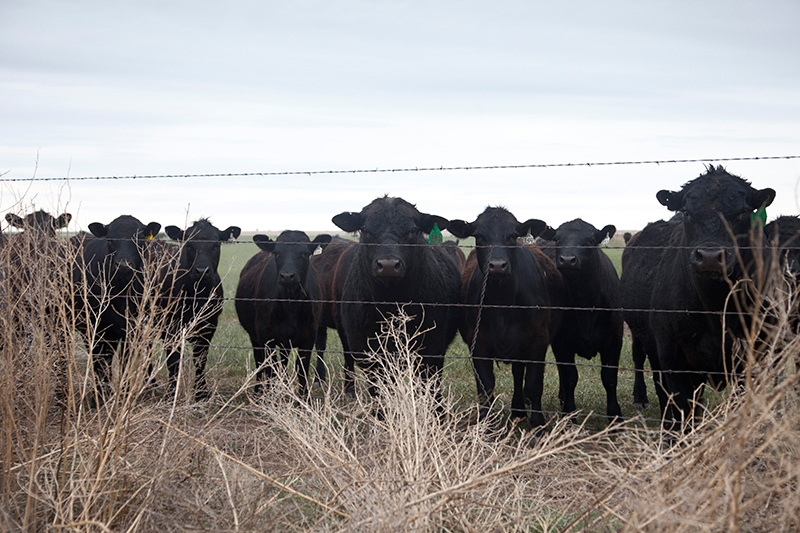
I remember hearing somewhere that the whole process of slaughtering cows and turning them into beef and burgers uses an abhorrent amount of water, and that immediately came to mind with the image of the cows in a series that deals with H2O. But they’re also these big animals, filled with a lot of water in the first place. On the other hand, you hit us with these really plastic, modern interiors in this body of work in addition to photos of people and animals. What’s the significance of the juxtaposition of the living and not for you and the work?
Good question. I think it comes down to what is seen and unseen, like a system. We know it’s there; we know it works, but we can’t even visualize its parts, its process. We can only see its product and glimpse its construction through its outward facets. It’s like when you’re on a boat looking at the waves, and there’s this moment where you feel that your imagination is probably not as deep as the water.
It’s funny that you brought up the cows; my girlfriend and I found them in the middle of West Texas I think. And we were like, “howwww do they get enough water?” I guess it’s the grass, and maybe some far away trough. There was this question of how exactly they were living in the first place. As soon as you really start to think about them, though, they’re sadly these big ole beef money banks. They aren’t even cows really, just a piece of hardware that makes another system go round.
Someday I’ll go vegetarian, but I like my beef too much. :/
Dude, me too. There’s something about the delusion of a real experience that falls apart when confronted with how fabricated our notions of a “real experience” are. With blue screens promising reality and such juxtaposed with those raw moments out there on the dirt, you start to ask yourself what you really want in the first place. I think, in a way, Searching for Water is a metaphor for a journey without a real destination. I mean, do you ever feel like you crave the feeling of craving itself?
I often wonder how I came to be conditioned to desire what I do, like what that unquenchable longing is actually made from. I often think that’s what the promise of heaven and nirvana was all about. But on a lighter layer, it’s interesting how our quest to build or define our personal oases has left cultural marks on the land. There is failure built into this pursuit, and man I gotta tell ya, it sure has its bones laid out here in the West.
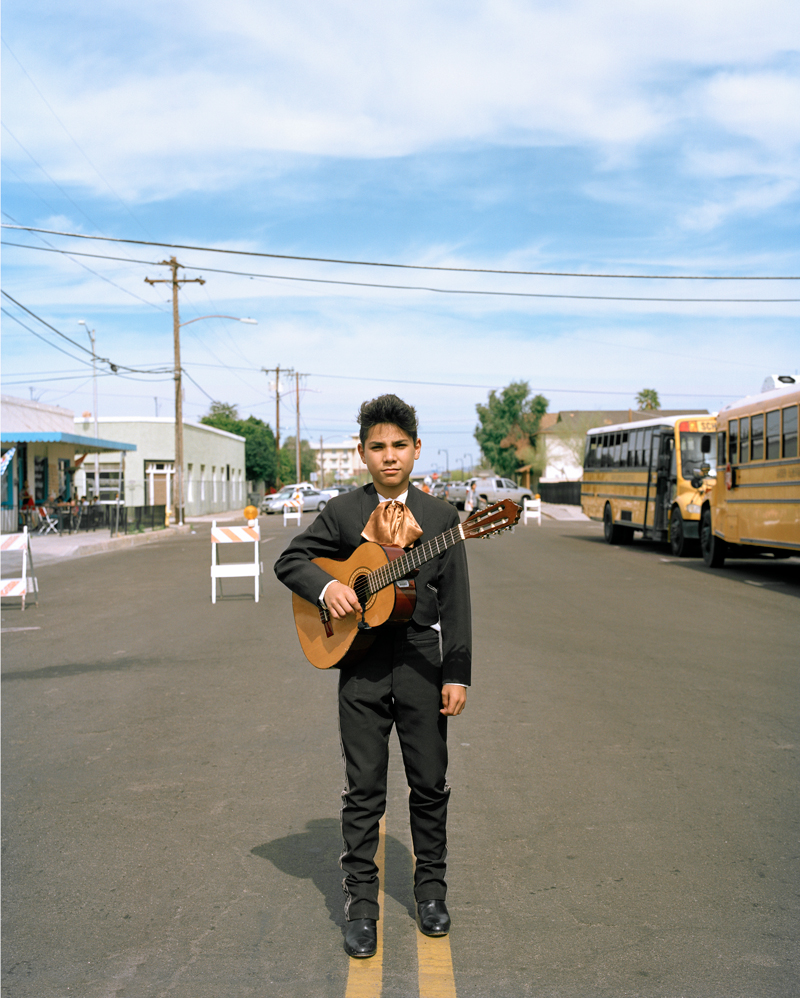
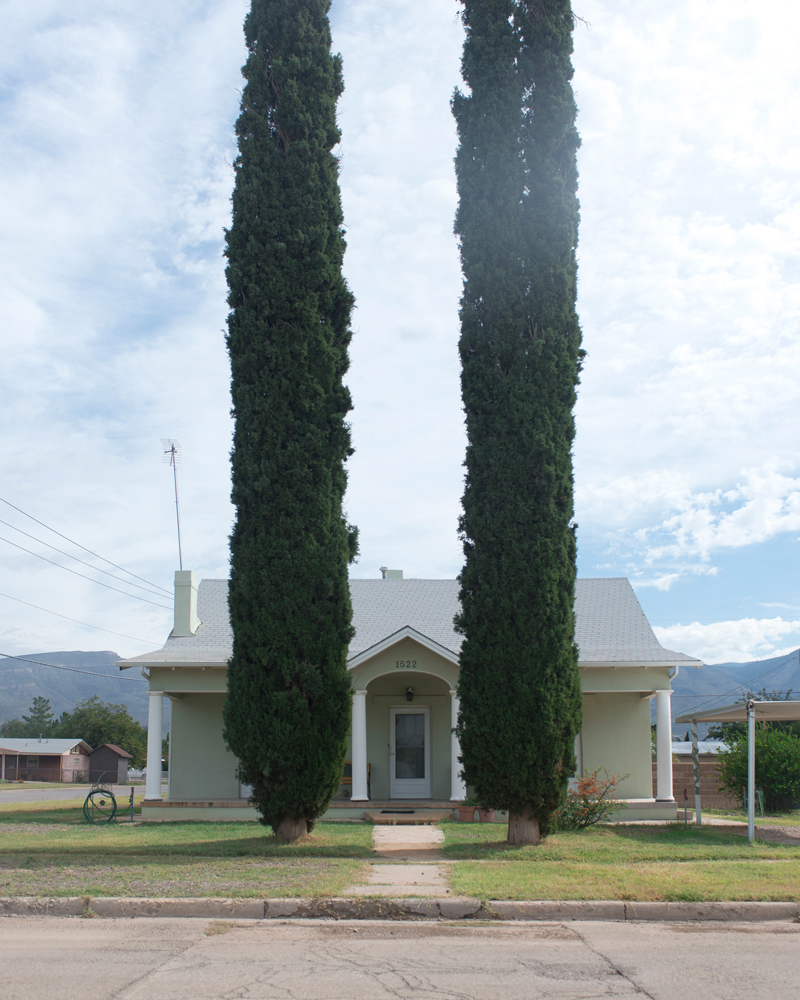
So in some of your images there’s a bit of uncertainty as to whether or not things are being photoshopped in. Like the excess visible in landscapes starts to become a little bit unbelievable, either too perfect or too depressing. I found the crazy cypress in that really Gohlke-looking image particularly striking. The way he photographed grain elevators and talked about those reminds me of the way that you were talking about visualizing an industrial process, was he inspiring for the work?
(laughs) It’s flattering to be compared to him! I had a high school photo teacher once compare my “empty aesthetic” to Lewis Baltz, and since then I’ve been hooked on the New Topographics work… Gohlke included. While I’m no stranger to post production, this series doesn’t have any Photoshop.
Wow. So those trees were actually just that fucking tall?
I was driving through a neighborhood in a tiny town near the US / Mexico border, and those trees were actually growing like that, in a dry dying town, which is why it was so amazing. My girlfriend and fellow artist, Emma Sobel and I were out making pictures and came upon it. I think at the same moment we both murmured “searching for water,” haha. Searching for Water was somewhat my “straight” photography series. For a lying fictional image builder like me, it’s nice to feel compelled to be as photographically honest as I can. It’s like a curated diary. But, all photographs are bullshit.
Yeah, truth… Thank you for your time!
Thank you!
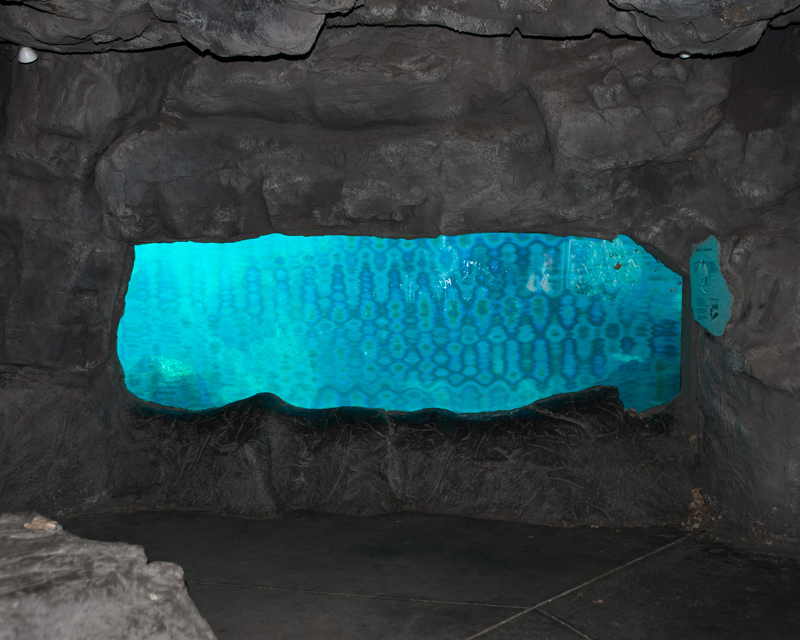
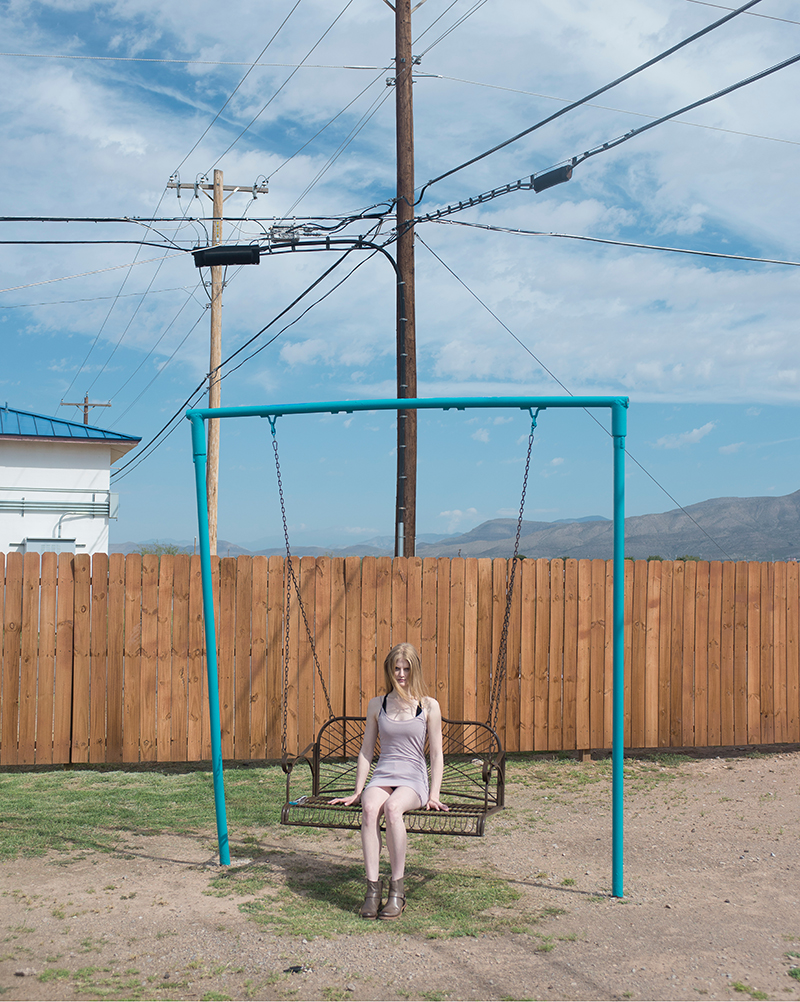
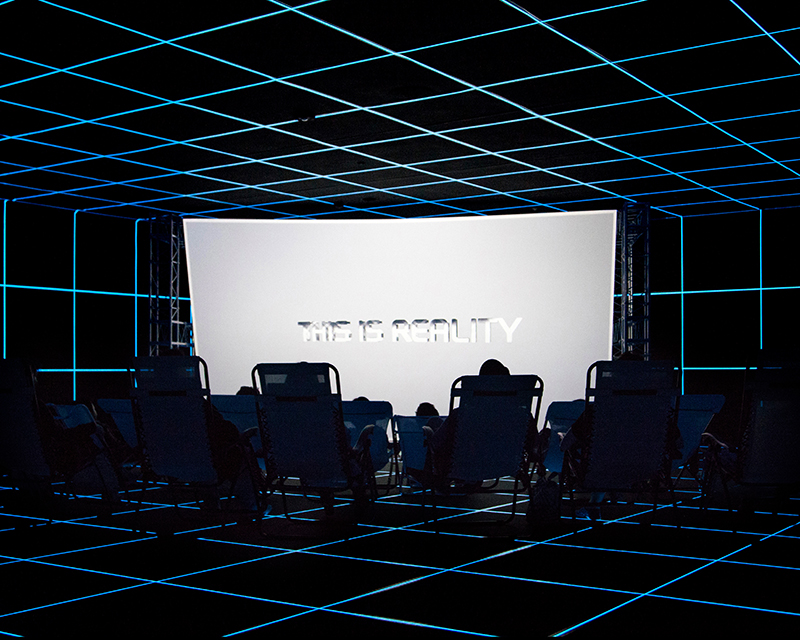
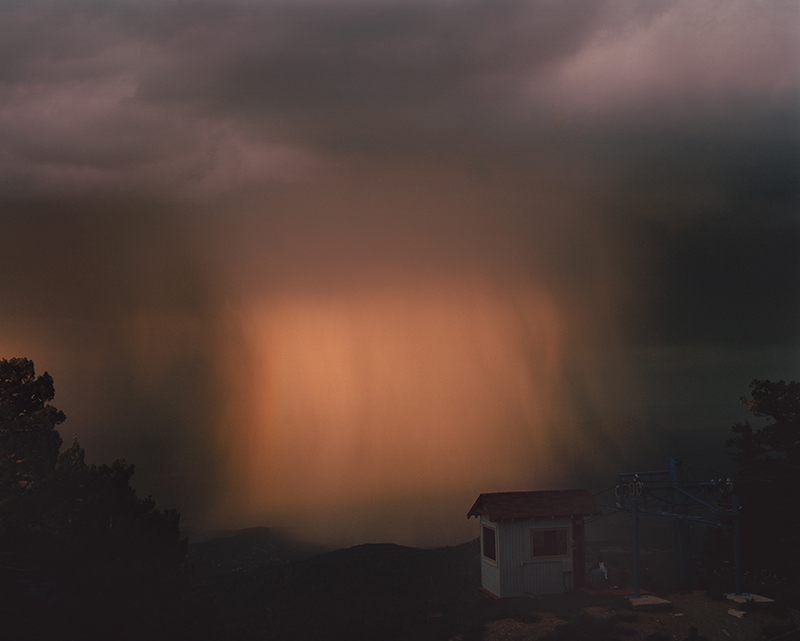
To view more of Stefan Jennings Batista’s work please visit his website.